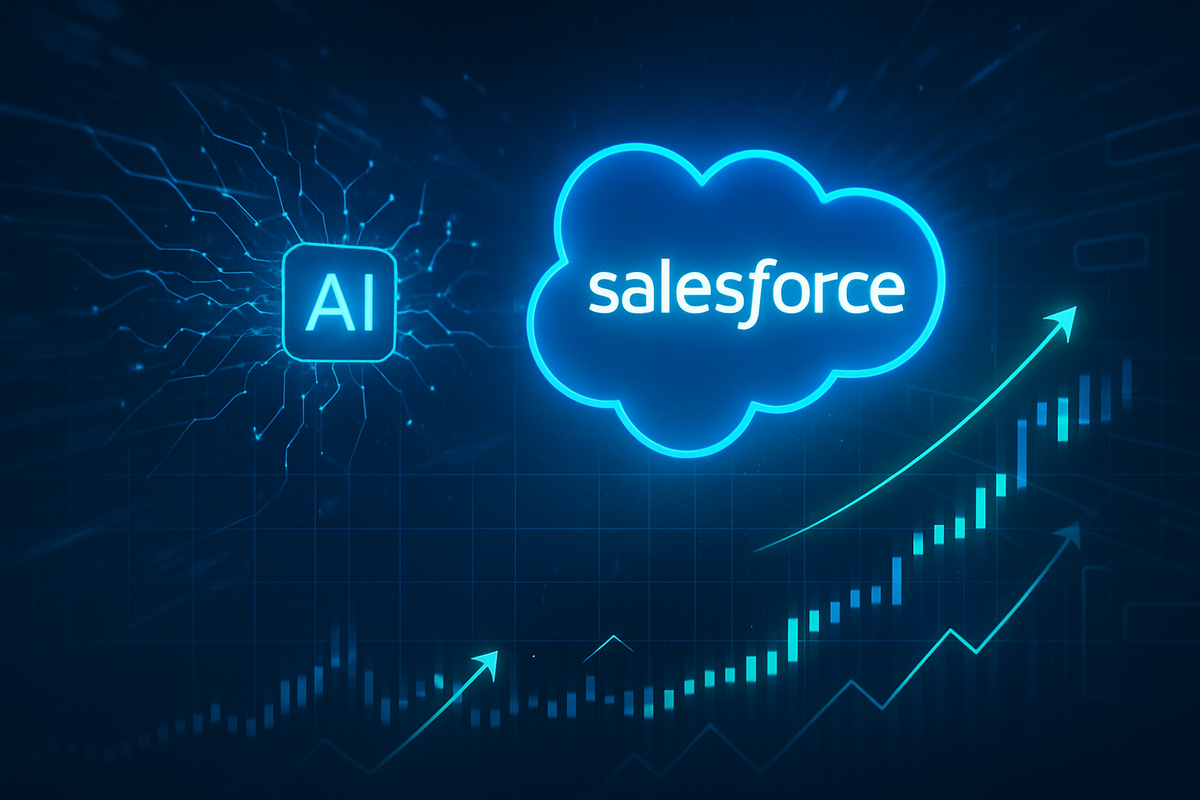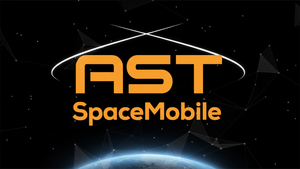
San Francisco, CA – October 20, 2025 – Salesforce (NYSE: CRM) today ignited the financial markets with an "AI bombshell," sending its stock surging to unprecedented levels. The CRM giant unveiled a monumental leap in its agentic AI capabilities, effectively launching what analysts are calling the "Agentforce 360 Revolution." This new iteration promises to fully unify AI across all Salesforce applications, deploying intelligent agents capable of autonomous action and complex task automation on a scale previously unimaginable within enterprise software.
The immediate implications for Salesforce are profound, solidifying its position as a dominant force in the rapidly evolving AI landscape. Investors reacted with overwhelming enthusiasm, pushing Salesforce's valuation significantly higher as the market grapples with the potential for unparalleled productivity gains and a paradigm shift in how businesses operate. The announcement is expected to trigger a wave of strategic recalibrations across the entire enterprise software sector, forcing competitors to accelerate their own AI roadmaps to keep pace with Salesforce's ambitious vision.
The Dawn of the Agentforce 360 Revolution
Today's announcement marks the culmination of years of strategic investment and development in artificial intelligence, building upon Salesforce's foundational Einstein AI, the generative capabilities of Einstein GPT, and the integrated AI Cloud. The core of today's "bombshell" lies in the full rollout of Agentforce 360, an integrated AI layer designed to permeate every facet of the Salesforce ecosystem—from Sales, Service, Marketing, and Commerce Clouds to Slack and Tableau. This isn't merely an incremental update; it's a declaration of an "agentic enterprise" where AI agents collaborate seamlessly with human counterparts, capable of understanding intent, executing complex workflows, and proactively delivering business outcomes.
The journey to this moment has been meticulously planned. Following the initial unveiling of Agentforce at Dreamforce 2024 and its subsequent advancement with Agentforce 2.0 in February 2025, Salesforce has been steadily laying the groundwork for this comprehensive integration. Key acquisitions like Convergence.ai in May 2025, which bolstered agentic AI capabilities, and the strategic move to acquire Informatica (NYSE: INFA), expected to close in early FY2027, have been instrumental in building a robust data foundation and advanced reasoning engine. The Atlas Reasoning Engine, combining large language models (LLMs), large action models (LAMs), and retrieval-augmented generation (RAG), is the technological heart enabling these AI agents to perform complex, human-like tasks in digital environments.
Initial market reactions have been overwhelmingly positive. Analysts are highlighting the scale and ambition of deploying one billion AI agents by the end of 2025, as stated by Salesforce leadership, as a testament to the company's commitment to transforming enterprise productivity. The ability for businesses to leverage Agentforce 360 for "vibe coding" (intuitive, natural language-driven development) and the promise of a unified data layer via the Data Cloud are seen as critical differentiators. This development is not just about automation; it's about intelligent, adaptive automation that learns and evolves with business needs, promising to unlock unprecedented efficiencies and personalization across customer interactions.
Shifting Tides: Potential Winners and Losers in the AI Era
The "Agentforce 360 Revolution" is poised to create distinct winners and losers across the technology and business landscapes. Unquestionably, Salesforce (NYSE: CRM) itself stands as the primary victor, with its stock surge reflecting renewed investor confidence in its long-term growth trajectory and market leadership. The enhanced value proposition of its comprehensive, AI-powered CRM suite is expected to drive increased subscriptions and expand its market share, further solidifying its position at the pinnacle of the CRM industry. Customers leveraging Salesforce's platform are also significant winners, poised to gain substantial competitive advantages through unprecedented operational efficiencies, hyper-personalized customer experiences, and accelerated business processes.
On the other hand, traditional enterprise software providers and CRM competitors face intensified pressure. Companies like Oracle (NYSE: ORCL), with its Fusion Cloud applications, and SAP (NYSE: SAP), with its S/4HANA suite, will need to rapidly accelerate their own AI integration strategies to avoid being outmaneuvered. While these giants also have robust AI initiatives, Salesforce's aggressive pivot to agentic AI and its seamless, platform-wide deployment with Agentforce 360 sets a new benchmark that demands a swift and substantial response. Similarly, Microsoft (NASDAQ: MSFT), particularly with its Dynamics 365 offerings and Copilot initiatives, will find itself in an even more direct and fierce battle for enterprise AI dominance, potentially needing to further integrate its various AI components to match Salesforce's unified vision.
Beyond direct competitors, the ripple effects extend to various sectors. Companies specializing in AI infrastructure, data integration, and ethical AI governance could see increased demand for their services as enterprises scramble to build their own AI capabilities or ensure compliance. Furthermore, consulting firms specializing in Salesforce implementations and AI strategy are likely to experience a boom in business. Conversely, smaller, niche AI startups that lack the comprehensive platform integration or financial muscle of Salesforce might struggle to compete, facing the challenge of either innovating at an accelerated pace or seeking strategic partnerships or acquisitions to survive in this rapidly consolidating market.
Broader Significance and Industry Transformation
Salesforce's Agentforce 360 announcement is far more than a product launch; it's a pivotal moment reflecting and accelerating several broader industry trends. The most prominent is the undeniable shift towards agentic AI, where autonomous systems move beyond mere data processing to proactive decision-making and task execution. This evolution from predictive to generative to agentic AI marks a fundamental redefinition of enterprise software, positioning AI not just as an assistant but as a co-pilot and even an autonomous executor within business workflows. This move aligns with the growing industry recognition that true AI value lies in its ability to take meaningful action, not just generate insights.
The event will undoubtedly trigger significant ripple effects across the entire technology ecosystem. Competitors will be compelled to double down on their own AI investments, potentially leading to an AI arms race among enterprise software vendors. This could spur further innovation but also intensify the competition for AI talent and foundational model partnerships. Partners within the Salesforce ecosystem, such as independent software vendors (ISVs) and system integrators, will need to rapidly adapt their offerings to leverage Agentforce 360's capabilities, potentially leading to new waves of specialized AI applications and services built on the Salesforce platform.
From a regulatory and policy perspective, Salesforce's aggressive push into agentic AI will likely intensify scrutiny. Concerns around data privacy, algorithmic bias, and the ethical implications of autonomous systems are already high, and a widespread deployment of AI agents will undoubtedly bring these issues to the forefront. Antitrust regulators, who have already shown interest in Salesforce's significant acquisitions like Informatica (NYSE: INFA), may pay closer attention to market dominance in the AI space, ensuring fair competition and preventing monopolies. The event could also accelerate the development of industry standards and best practices for responsible AI deployment. Historically, major technological shifts, from the internet to cloud computing, have always been followed by new regulatory frameworks, and AI will be no different. The sheer scale of Salesforce's ambition evokes parallels to the early days of enterprise resource planning (ERP) systems or the widespread adoption of cloud infrastructure, promising a fundamental restructuring of how businesses operate.
Navigating the Future: What Comes Next
The immediate aftermath of Salesforce's Agentforce 360 launch will see a flurry of activity as businesses and competitors alike digest the full implications. In the short term, Salesforce (NYSE: CRM) will focus on demonstrating tangible return on investment for early adopters, showcasing real-world case studies of enhanced productivity and efficiency. This will be crucial for converting the initial market enthusiasm into sustained adoption. Competitors, meanwhile, will likely issue their own counter-announcements or accelerate existing AI initiatives, attempting to mitigate Salesforce's perceived lead. The market will be abuzz with discussions around integration challenges, data governance, and the talent required to effectively implement and manage these advanced AI systems.
Looking to the long term, Agentforce 360 sets the stage for a profound transformation of the enterprise software landscape. We can anticipate significant strategic pivots from companies across various sectors. Non-CRM enterprise software providers may seek deeper AI integrations with their own platforms or explore partnerships with foundational AI model providers to create their own agentic capabilities. The demand for skilled AI professionals, particularly those with expertise in prompt engineering, AI governance, and ethical AI development, will skyrocket. This could lead to a massive retraining effort across industries to equip the workforce with the necessary skills to collaborate effectively with AI agents.
New market opportunities will undoubtedly emerge. Specialized AI consulting services, tools for monitoring and optimizing AI agent performance, and innovative solutions for ensuring AI explainability and fairness will become critical. We may also see the rise of new types of businesses built entirely around leveraging agentic AI for niche applications. Conversely, challenges will include managing the complexity of increasingly autonomous systems, addressing potential job displacement concerns through upskilling initiatives, and navigating the evolving regulatory environment. Potential scenarios range from a rapid, industry-wide adoption of agentic AI leading to unprecedented productivity gains, to a more cautious, phased approach as companies grapple with implementation complexities and ethical considerations. The ultimate outcome will depend on Salesforce's ability to deliver on its ambitious promises and the industry's collective capacity to adapt to this new era of intelligent automation.
Comprehensive Wrap-up: A New Epoch for Enterprise AI
Today's "AI bombshell" from Salesforce (NYSE: CRM) marks a definitive turning point in the evolution of enterprise software, ushering in what can only be described as a new epoch for artificial intelligence. The unveiling of Agentforce 360, with its promise of unified, agentic AI across the entire Salesforce platform, represents a bold and ambitious vision for an "agentic enterprise" where intelligent systems autonomously drive business outcomes. The immediate surge in Salesforce's stock is a clear testament to the market's recognition of the profound implications of this strategic move, positioning the company at the forefront of the AI revolution.
The key takeaways from this event are manifold: Salesforce's aggressive pivot to agentic AI is not merely an enhancement but a fundamental redefinition of CRM and enterprise productivity. The strategic integration of Data Cloud, the Atlas Reasoning Engine, and key acquisitions underscores a holistic approach to building a truly intelligent and autonomous business platform. While Salesforce emerges as a clear leader, the ripple effects will necessitate rapid innovation and strategic adaptation from competitors and partners alike, reshaping the competitive landscape and accelerating the broader industry's embrace of advanced AI.
Moving forward, the market will closely watch Salesforce's execution of its Agentforce 360 roadmap, particularly its goal of deploying one billion AI agents by year-end. Investors should monitor customer adoption rates, the tangible productivity gains reported by early implementers, and the company's ability to navigate potential regulatory scrutiny surrounding AI ethics and data governance. The long-term success will hinge on Salesforce's capacity to deliver on its promise of augmenting human capabilities, fostering trust in autonomous systems, and continuously innovating in a rapidly evolving AI landscape. This event is not just a moment in time; it's a catalyst for a future where AI-driven autonomy becomes the standard, forever altering how businesses interact with technology and their customers.
This content is intended for informational purposes only and is not financial advice






